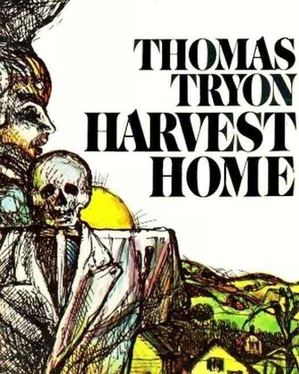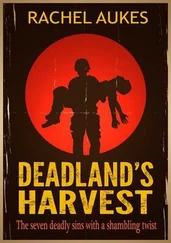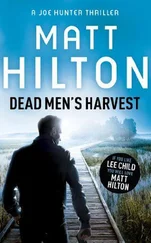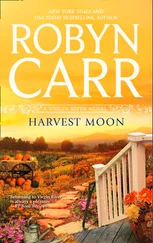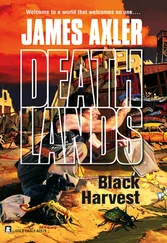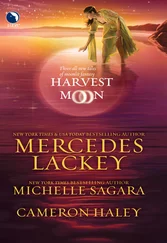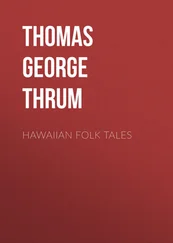Thomas Tryon - Harvest Home
Здесь есть возможность читать онлайн «Thomas Tryon - Harvest Home» весь текст электронной книги совершенно бесплатно (целиком полную версию без сокращений). В некоторых случаях можно слушать аудио, скачать через торрент в формате fb2 и присутствует краткое содержание. Жанр: Ужасы и Мистика, на английском языке. Описание произведения, (предисловие) а так же отзывы посетителей доступны на портале библиотеки ЛибКат.
- Название:Harvest Home
- Автор:
- Жанр:
- Год:неизвестен
- ISBN:нет данных
- Рейтинг книги:5 / 5. Голосов: 1
-
Избранное:Добавить в избранное
- Отзывы:
-
Ваша оценка:
- 100
- 1
- 2
- 3
- 4
- 5
Harvest Home: краткое содержание, описание и аннотация
Предлагаем к чтению аннотацию, описание, краткое содержание или предисловие (зависит от того, что написал сам автор книги «Harvest Home»). Если вы не нашли необходимую информацию о книге — напишите в комментариях, мы постараемся отыскать её.
For Ned and his family, Cornwall Coombe was to be come a place of ultimate horror.
Harvest Home — читать онлайн бесплатно полную книгу (весь текст) целиком
Ниже представлен текст книги, разбитый по страницам. Система сохранения места последней прочитанной страницы, позволяет с удобством читать онлайн бесплатно книгу «Harvest Home», без необходимости каждый раз заново искать на чём Вы остановились. Поставьте закладку, и сможете в любой момент перейти на страницу, на которой закончили чтение.
Интервал:
Закладка:
“How?”
“It must be reverenced.”
“With corn gods?”
His eyes held mine in a level gaze for a moment; then they took on a puckish gleam. “Did you figure out who it was- that night?”
“In the field? No-”
“We must learn to discover what is possible.”
I heard him, yet I was miles away; not miles, but as far as Soakes’s Lonesome, on the Widow’s mushroom hunt. A man must learn-
“Did you like the little ‘experience’?”
— to discover-
“The music? The little cask? Your friends?”
— what is possible …
Justin’s eyes now held a smile. “Is it such an enigma? Such a sphinx? Come on, Ned, a fellow as smart as you-”
I was trying to put it together. “It was you, then?”
He laughed again, a deep, rumbling laugh. “Not me. I’m no actor. I told you, we went to the movies. And I didn’t mean him, I meant the lady.”
I was mentally stumbling, trying to make the connection, to grasp on to the reality forming in my mind. The doll in Justin’s field-the veiled figure below our meadow. “You mean they’re the same?”
“There is only one.”
“Who?”
His expression sobered. “She’s been a riddle for a long time. We thought sure you’d get it.”
“Not the Corn Maiden.”
“No.”
“Then-”
“She is very old.”
… older than Rome or Greece, older than Crete, than Babylon or Egypt; as old as the dawn of time …
Suddenly I saw. Saw clearly. I knew now who she was: the sphinx unveiled. “I-” Fumbling for words.
“-didn’t know. ‘Course you didn’t. Now you do.” He nodded, his amusement gone. “Now you do,” he repeated. “She’s our Mother. The Mother Worthy Pettinger cursed.”
A man must learn to discover what is possible.
A little “experience.”
Not the Corn Maiden, but someone else.
The Mother.
“You worship something called the Mother? Mother-” He was waiting for the last word; I supplied it: “Earth.”
He made an equivocal gesture with one hand. “She is- paid homage.” If I had watched closely, he went on, I had seen it all in the Corn Play. This was not merely a play, but the enactment of a belief-namely, that the renewal of life is the natural counterpart of the sexual union of the Harvest Lord with a spirit of growth, a goddess of fertility. No, the Corn Maiden was not the Mother, but one acting in her place.
“Fertility is the important thing to us here. Death is a terrible thing. But for us barrenness is worse. If you’re a farmer, that’s about the worst thing that can happen to you. In the play, if the corn sprouts in due season, it’s because the Earth Mother has been impregnated, and was caused to bear.”
“Christ, Justin-fertility rites?”
“If you like.” Again a gentle smile. “But what is to stop people from believing? There are stranger beliefs in this world. Ours is very simple. And it keeps us from-” He paused, gravely looked off at the annihilated cornfield.
“From what?”
“From being afraid. We fear only one thing, that something should interfere or change the cycle.”
“Which cycle?”
“Of life. Of living things, of the seasons. Of the natural order of things. The Eternal Return.” He spoke simply but earnestly, with a depth of conviction I found it difficult to fault.
“But they go to church on Sunday and sing hymns, like everyone else in the land.”
“Is everyone like everyone else in the land? I don’t think a Cornishman would agree with that. Being different’s part of our heritage. Personally, I’m proud of it.” It was not arrogance I read in his face, but a realization of himself, of what he stood for in the eyes of the villagers, and his responsibility to them. They had honored him; he would not fail them. “If you have questions, take them to the Widow Fortune,” he said kindly. “And,” he added, almost as an afterthought, “as you hope for tolerance from the villagers, so they must hope for tolerance from you.”
“What about tolerance for Worthy?”
“What d’you mean?”
“Simply that it doesn’t seem to me that anyone’s taking into account what he wants for himself.”
“I don’t know if Mr. Deming will want to take that into account. Worthy understands.”
“Understands what?”
“What he’s supposed to do. Mr. Deming does not consider that the honor’s to be taken lightly. Nor do the rest of the villagers.”
I started to pretest; he moved toward me, putting his hand on my shoulder. Even in his casualness, he gave me the feeling he was exercising all his influence, cautioning me not to behave rashly, trying to protect me from my own ignorance. That in some unspoken way he was to be trusted, that he of himself could control the situation.
“I understand. It’s natural to doubt. Not to believe. But give it time.”
Who was I to try to solve mysteries that had been insoluble for the ages. Napoleon, trying to solve the riddle of the sphinx. I would give it time-for now.
When Justin went back to work, I stowed my painting gear in the car, then drove over to the Pettinger farm. No one answered my knock at the back door; the barn was closed, the place deserted. As I left, I glimpsed Worthy’s mother at an upstairs window; she made no sign.
Beth passed me going in the opposite direction, toward the bridge. She waved, then sped on without stopping, and I wondered where she was hurrying to. Returning to Penrose Lane, I stopped next door to speak with Maggie. I rang the bell; she answered, kissing me warmly and pressing my hand.
“Hi, Ned! I’m so happy about the baby!” I thanked her, and asked if she knew where Beth had gone.
“She said she had an appointment somewhere, then she wanted to look at wallpapers for the new nursery. Come on into the kitchen-I’ve got Robert’s lunch on. Have some?”
I declined, accepting her offer of a drink instead. Carrying Robert’s tray, she brought me into the sun porch. She set down the tray, waited for a pause in the narrative on the record player, then lifted the arm and shut it off.
“See who’s here, dear,” she said, “Ned.”
“Well, m’boy, pull up a chair.”
“Robert’s reading Anna Karenina .”
Robert readied himself while his wife unfolded a card table and set it up over his knees, put the tray on it, and opened a napkin and tucked it in his hand.
“Thank you, dear.” He began feeling out the carefully cut meat with his fork, the tips of his fingers working like antennas over the implements; Maggie hovered to assist his hand in finding the glass of milk or the salt shaker. When he had finished, she took his napkin from his lap, removed the tray, and bent to kiss him before going out.
“Don’t forget your drops, dear. Perhaps Ned will take down the card table-all right? Anything you need before I go?”
“Can I have a cigar?”
“Oh, Robert, you know what the Widow said.” She gave me a wink, set the tray down again, and took a cigar from the humidor on the desk, did her ritual of preparing it for Robert, then held the match while he lighted it.
“That’s quite a ceremony she performs,” I observed when Maggie had gone.
“Yes, Margaret’s father taught her.” He blew three smoke rings, the last passing through the first. “Did I do it?”
“Bull’s-eye. You should see them-” I stopped in embarrassment.
“It’s all right, m’boy, no need for blushes. The worst thing is for people to be conscious of my-infirmity. I’m used to it. Always amazes me how much I can see.”
“You have some vision still?”
“Blind as a bat. But I can see things in my head. The wonderful part is that for me they never change. Take Margaret, for example. I know she’s older now, but I see her exactly as she was when I lost my sight. And I get along. I have her, and my talking books. After Anna Karenina , I’ll undoubtedly get around to David Copperfield , finally. Is there a small bottle here somewhere?” His fingers were groping among the things at his elbow; I leaned over and put into his hand a rubber-stoppered bottle.
Читать дальшеИнтервал:
Закладка:
Похожие книги на «Harvest Home»
Представляем Вашему вниманию похожие книги на «Harvest Home» списком для выбора. Мы отобрали схожую по названию и смыслу литературу в надежде предоставить читателям больше вариантов отыскать новые, интересные, ещё непрочитанные произведения.
Обсуждение, отзывы о книге «Harvest Home» и просто собственные мнения читателей. Оставьте ваши комментарии, напишите, что Вы думаете о произведении, его смысле или главных героях. Укажите что конкретно понравилось, а что нет, и почему Вы так считаете.
